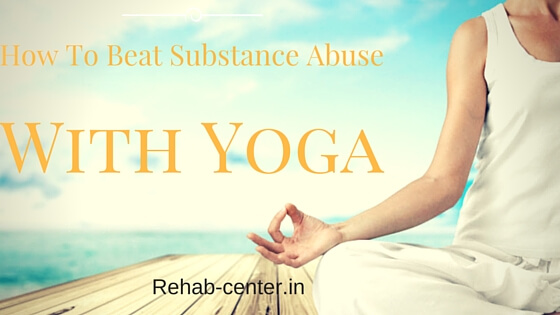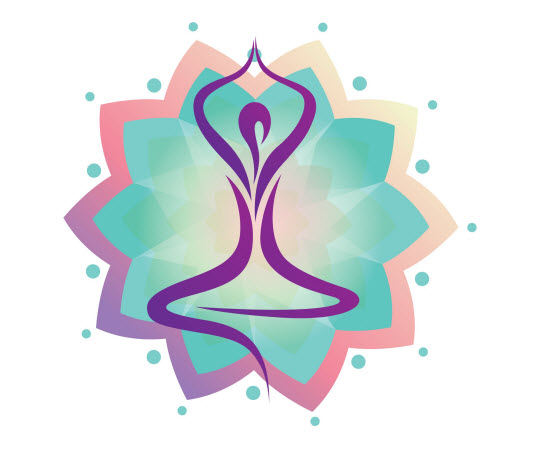It is a common fact that addicts and yogis don’t sail in the same boat. Far from it, they are poles apart. But of late, greater numbers of people are realizing the importance of yoga to help addicts rehabilitate and reintegrate with the real world. Though medical treatment forms a major part of alcohol addiction recovery, more and more rehab centers are including yoga and meditation as a treatment modality for recovery from alcohol addiction.
What Happens In Alcohol Addiction?
Stress and depression often push people into drinking alcohol. Alcohol addiction helps them to keep reality at bay, dissociate from the world, their bodies and themselves and hence, drown out the psychological stress and anxiety. Alcohol addiction develops rapidly as alcohol triggers the reward systems in the brain.
The withdrawal symptoms are dreary and horrible and the fear of going through withdrawal and layers of hangovers often prevents people from getting rid of alcohol. People start sinking into this vicious cycle. In due time, alcohol traps alcoholics in a fabricated world of distortion and denial. Only a few strong willed people can get themselves up and seek treatment at rehabilitation centers.

How Does Yoga Help In Alcoholics?
Yoga helps to break through the various layers and layers of distortion, denial and dissociation. People generally fill their free time with drinking. Since that is the time the anxiety and panic attacks hit hardest. Yoga helps to fill up that free time. It will ensure that you eat well and your sleep patterns are normal, both of which alcohol prevents.
Over a period of time alcoholics become numb to psychological stimuli. Yoga revives that responsiveness and makes a person more alive. It develops a positive and nurturing relationship with physical sensations. It detoxifies and heals the connection between the body and self; brings about an awareness that seems lost.
Yoga helps to let go of the past and step into the present world. It helps individuals to cope with life better and modulate their own psychological upheavals. In fact, the use of yoga to treat addiction is slowly and steadily trickling into the contemporary culture as well.
How Does Yoga Help In Addiction Recovery?
- Meditation, which is a form of yoga, trains the mind. It enables the fusion of mind and body. It binds the person with the world again. Meditation helps the person to calm down and connect with his own body and breath. It makes the person more comfortable in his own skin.
- Meditation helps us to turn inwards, a chance for introspection. As you start connecting with your inner self, the external highs will mean less and less until there comes a point, where you no longer need them.
- As the yoga starts calming your body inside out, you feel lulled and soothed. You will realize that sudden mood swings and out of control reactiveness that alcohol caused are something that you can now reign in and keep in check. It’s like finding your center of the mind, your peace at the right time.
- Meditation has been shown to develop the prefrontal cortex of the brain. The area most affected by alcohol. It strengthens your mental faculties and assists you in gaining absolute control over your desires, actions and emotions. You are no longer subject to your whims but are the master with a great strength of mind. It will be almost like you can command yourself to gather yourself and come out of the downward spiraling moods. You come out stronger and more self-reliant.
- The highly specialized kundalini yoga has been shown to play a role in the regeneration of nerves and glandular tissues of the body. The difficult poses test your endurance and inner strength. It then becomes clear that practicing this form of yoga regularly increases your mental and physical endurance. You feel more energized and confident, ready to face any challenge.
The breakdown and panic attacks come on less frequently and the urge to turn to alcohol and drugs reduce tremendously. Yoga and meditation when combined together give the yogi a fierce sense of determination, which ultimately helps them to break the shackles of alcoholism.
- Sans alcohol sleeping becomes difficult in chronic alcoholics. Certain yoga sets viz. Kundalini poses along with Vinyasa flows and Pranayama when done while preparing for bed help in the relaxation of the muscles in the entire body. As the body begins to relax, the mental fatigue wears off allowing the yogi to go into a deep sleep, that yogis call a yogic sleep.
- Alcoholics tend to be lonely very often. With no company, the desire to come out of the false world slowly ebbs away. In yoga classes, teacher and fellow students provide that much needed and desired company. When alcoholics see fellow trainees struggling through similar situations, it motivates them to leave their addiction and embark on a more rewarding journey towards a better life.
Yoga Postures That Help In Recovery

- Vajrasana: It invites stillness into the body and brings a calming effect.
- Balasana: This asana releases tension and relaxes muscles of the shoulders and spine and relieves stress and mental fatigue. When you regularly practice this asana you can feel the positive vibes of healing energy from within.
- Paschimottanasana: When done properly, it stretches the hamstrings and lower back muscles. It instills and fosters calmness and helps you to let go.
- Savasana: Done at the end of hatha yoga (the more physically expending form of yoga for weight loss and calorie burn). It allows you to relax after the workout and relieves the physical tension. In the process, it rejuvenates and replenishes the mind and body preparing it for anything and everything.
References:
1. http://www.hipsobriety.com/
2. http://www.yogajournal.com/
3. http://featheredpipe.com/paschimottanasana/
4. http://lotusmudra.com/?page_id=75



